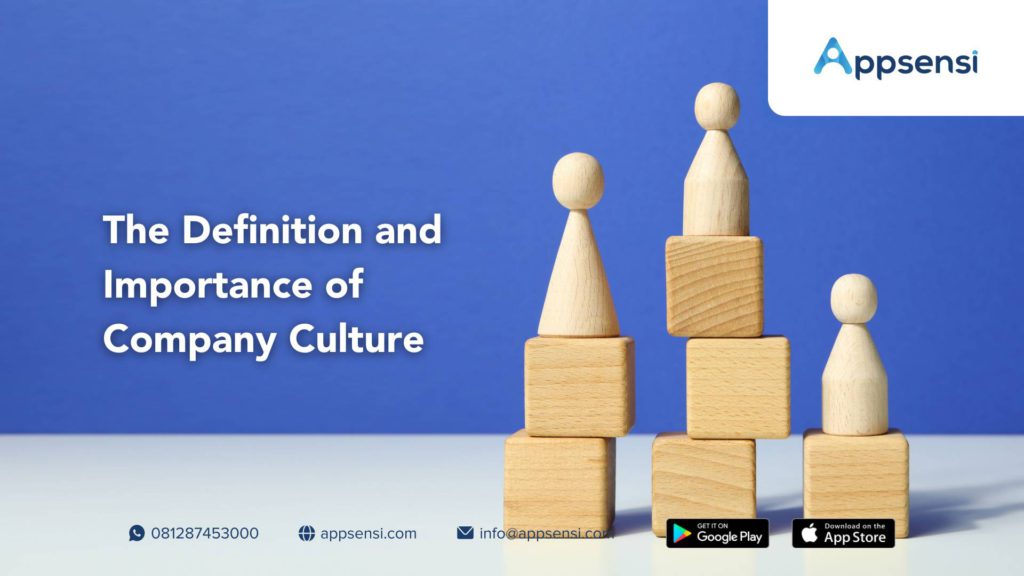Most people focus on concrete, surface-level benefits, and standards when thinking about company culture and employee engagement: dress code, and framed mission statement in the lobby.

Though these are extensions of culture and have an influence on engagement, they do not define or generate it. While there is no one-size-fits-all solution for developing company culture and organizational culture tools, a company culture platform is an excellent place to start.
Before we get started, let’s define company culture, 4 common types of company culture, as well as how to create the organizational culture that your business (and employees) require.
What is Company Culture?
So, what is company culture? Company culture is a shared set of values, goals, attitudes, and practices that characterize an organization.
Company culture in the workplace includes things like the work environment, the corporate mission statement and fundamental values, management style, and workplace ethics. It can be planned or developed organically.
Misconceptions
There are several misconceptions about company culture in an organization. You need to remember that company culture is not:
Your Core Values
Core values are definitely part of your company culture, but if you don’t put them into practice, they are just words on paper. Core values can harm culture if they are not adhered to. Employees will see you as a rambling company and failing to live up to its standards.
Your benefits and perks
Ping pong tables and free lunch can be great things, assuming they represent what your employees care about, but benefits and perks are no substitute for strong company culture.
The standard against which all candidates measure
Company culture is not a standard for candidates to measure. Hiring for cultural fit has been a hot topic over the last few years, but we have seen companies move away from this way of thinking.
Hiring people who align with your culture makes sense on the surface, but many companies use this “scale” as a crutch. Many companies have focused on the “culture enhancement” model, seeking candidates who align with the most important elements of their culture, but also bring their unique traits to the table.
4 Common Types of Company Culture

There are 4 common types of company culture. Below are the characteristics of each culture and their advantages and disadvantages.
1. Clan Culture
The clan culture has a friendly and cooperative working environment. Similar to extended families, leaders in organizations are mentors, and organizations are united through tradition and loyalty.
There is also more participation and a greater focus on human resource development. Success has a lot to do with caring for people and meeting customer needs. Organizations help achieve this by promoting participation, consensus, and teamwork.
Advantages
- Teams enjoy working together.
- Team members’ communication is open and effective.
- High market growth potential.
- Employees tend to be highly engaged in work.
Disadvantages
- It is difficult to maintain it as the business grows.
- Productivity can be sacrificed by too much collaboration.
- Since this is a horizontal leadership structure, career paths are more unclear.
- Taking into account the feelings of other employees can lead to an inability to take responsibility and make difficult decisions.
2. Adhocracy culture
This is a dynamic and creative work environment in which both leaders and employees are innovative and risk-taking. Change and agility are fundamental values, and success is determined by creating new products and services. Organizations promote individual freedom and initiative.
Advantages
- High risk, high reward. Greater growth and breakthrough potential.
- Employees feel supported when suggesting new ideas.
- Employees are encouraged to use their imagination and come up with innovative ideas.
- More likely to invest in chances for professional development.
Disadvantages
- Potential instability due to many new initiatives being taken.
- The risk is that the new venture will not succeed and damage the company.
- Novice employees may feel intimidated by the need to act aggressively and decisively.
- This work culture can create an environment in which employees feel competitive with one another because they are pressured to always come up with new and fresh ideas.
3. Market Culture
Market culture focuses on getting involved in business, getting work done, and achieving results. Competitive environment, goal-focused people, results-based organization. The culture emphasizes winning, and market penetration and stock market penetration are the definitions of success.
Advantages
- The employees are passionate about their work.
- The competitive climate encourages all employees to work hard and achieve company goals.
- The organization focuses on profitability; This is a goal that employees can follow.
- Companies with a market culture are often successful and profitable.
Disadvantages
- It can be difficult for employees to be involved in their work because every decision is tied to numbers.
- This environment-driven constant competition can create a toxic work environment.
- Employees can feel stressed at work due to the constant pressure on performance.
- It is not uncommon for employees to become tired because they are expected to keep climbing the ladder and producing results regardless of personal costs.

4. Hierarchical culture
This type of culture is based on processes and procedures, with processes implemented in a formal and structured work environment. Leaders monitor and facilitate compliance with tried and known methods of doing business while keeping costs and errors low. Success is defined by low costs, planning, smooth execution, and reliable delivery.
Advantages
- The company remains stable.
- The company’s operations are clearly defined to achieve its objectives.
- When employees arrive at work, they know exactly what is expected of them.
- Workers feel safe knowing that expectations and working conditions are predictable.
Disadvantages
- Prioritizes actions over people who create an inflexible work culture.
- This culture can hinder innovation because employees can be discouraged from suggesting new ways of approaching things.
- It can be difficult to respond quickly to changes in the market.
- Company goals take priority over individual goals, which means less attention is paid to employee engagement.
Importance of Company Culture
A strong company culture benefits your company from the inside out.
Like it or not, company culture is socialized in your company. Organizational culture tells people how to behave, whether they are valued, how their work gets done, and what is important to the organization.
Research shows that the company culture is the single most important factor in the success or failure of an organization. And while most companies understand the importance of strategy, they often don’t realize that it’s the culture that drives it. Therefore, if your culture is incompatible and supports your strategy, your strategy will fail.
Employees prefer to work in companies with a strong culture and a certain set of positive values. Clients also prefer to sponsor companies that have a clear mission and positive workplace values.
Here are some additional benefits that a company can gain by focusing on the company culture:
- Increase employee retention: Potential employees are attracted to organizations that are known to be good places to work. Better talent is also attracted to this type of organization, and your current employees are also more likely to stay in the organization.
- Better Image: Brand image is influenced by culture. If customers hear that your company has a toxic work environment, sales will be affected.
- Improved efficiency: It affects the productivity level of all employees.
- Improve teamwork: Projects can be completed collaboratively with better results due to strong company culture.
Statistics
There’s more. Statistics said some astounding facts regarding company culture.
- 46% of job seekers state that corporate culture is extremely important when choosing to apply to a company.
In the candidate market, most job seekers screen potential employers based on their own company culture. 46% of candidates believe culture is very important in the application process, with a total of 88% of job seekers stating that it is at least relatively important.
- 47% of active job seekers cite company culture as the reason for their job search.
If your company culture works, it will turn employees into brand ambassadors.
- 50% of married job seekers rate the company culture when applying for a job compared to 41% of single candidates.
It makes sense for married job seekers to care deeply about their relationship at work, but the fact that all candidates place such a high value on company culture should underscore its importance.
- 15% of job seekers decline a job offer due to company culture.
Likewise, a candidate will not take the job if it means being part of bad company culture.
How To Build Your Company Culture

Creating a strong company culture is not as easy as you imagine. Here are some guides to building your company culture.
1. Define your core values
We’ve said this before, but we’re repeating this again: Core values are just words on paper until they’re put into practice. The best candidates will do a lot of research on your company before applying, and they will be able to tell if you are going for a walk in terms of your core values. Core values become more than just words.
2. Define cultural goals
Every business has a goal, and no, we’re not talking about your quarterly KPIs. We talk about the basic idea behind your company. The reason for its establishment in the first place. The way you achieve these goals has a huge impact on the company culture. When a company’s goals align with the goals of its employees, great things happen.
3. Involve your whole team
The general attitude of the workforce in the organization is one of the main drivers of the company culture. Getting the big picture right helps promote a positive attitude, but never assume that it is enough. A few proactive steps can help keep attitude — and productivity — high:
- Be sure to show appreciation for everything your team does. Everyone is busy, and it can be easy to overlook the little things, but a little appreciation goes a long way.
- Find out what motivates your employees and give them the opportunities they seek. Allowing your team to pursue what motivates them can keep employees engaged and attitudes healthy.
- Even the best employees need help from time to time, so make sure you provide plenty of support. Whether it’s professional or personal, showing that you’re there for your team when they need you is one of the most important things a leader can do.
4. Follow the best practices
When it comes time to implement your company’s culture and initiatives, be sure to do it with purpose. Like attitudes, the company practices are the meeting place for cultural rubber.
An environment that allows people to avoid inconsistent behavior with the company culture will result in substandard performance among weaker employees and dissatisfaction among stronger employees. Fortunately, there are many steps you can take to avoid this problem:
- Start with an example. Simply put, the easiest way to make sure your employees’ practices live up to expectations is to make sure that they see their leaders embody those practices every day.
- Reinforce the type of behavior you want to see. not talking about financial rewards here. Knowing which employees adhere to a company’s culture can have a huge impact on behavior.
- Be sure to provide lots of feedback. You cannot expect employees to change their behavior if they don’t know what they do wrong. Giving honest feedback may be uncomfortable, but it is the key to a healthy culture.
Of course, building a strong corporate culture takes time and a lot of hard work, but as we’ve seen, the benefits are well worth it.
Also read: How to Create the Perfect Business Development Strategy
Walk the Talk With Appsensi
Changing your current company culture requires hard work, persistence, and commitment. More than 50% of organizations struggle to retain high-value employees. Improving and maintaining corporate culture is not just about presentation; This is a matter of survival for your organization.
So, let’s not just talk the talk. With our easy-to-use, mobile-based HR solutions, Appsensi can support your company culture easier. Whatever your company culture is, Appsensi can help you manage your employees and monitor attendance with a real-time report.
Attendance, Task Assignment, Payslip, Overtime, Leave, and other HR work are easily done with your mobile wherever and whenever you are. Chat with us for more solutions for your company or business.
[hubspot portal=”8748271″ id=”29889827-c326-4eca-a8ae-0932fde56f6b” type=”form”]







Tulis Komentar